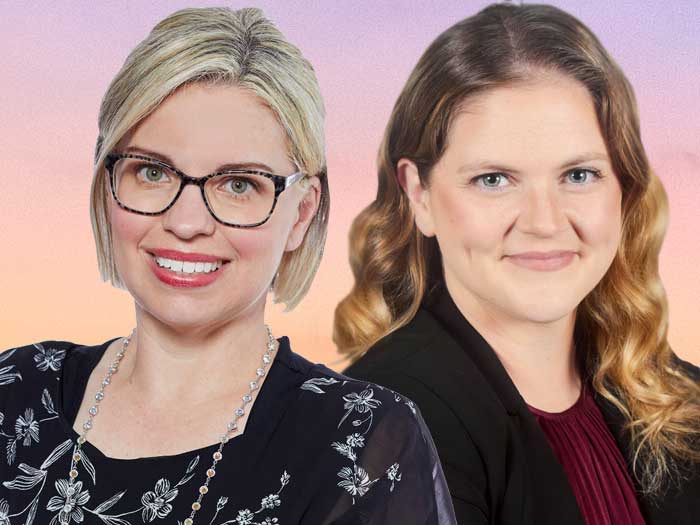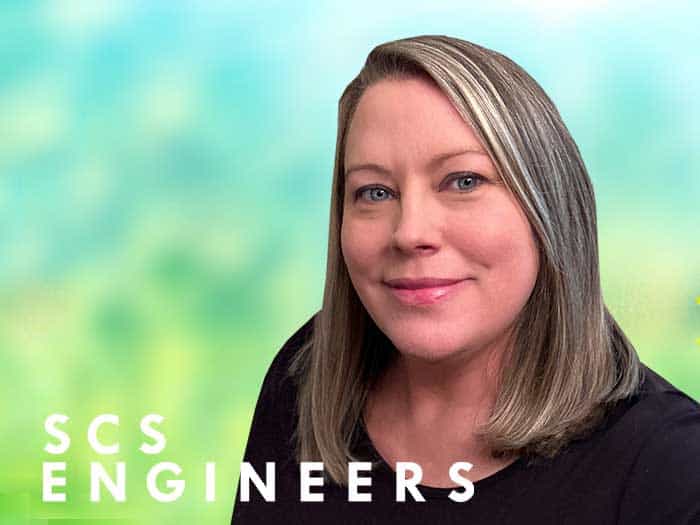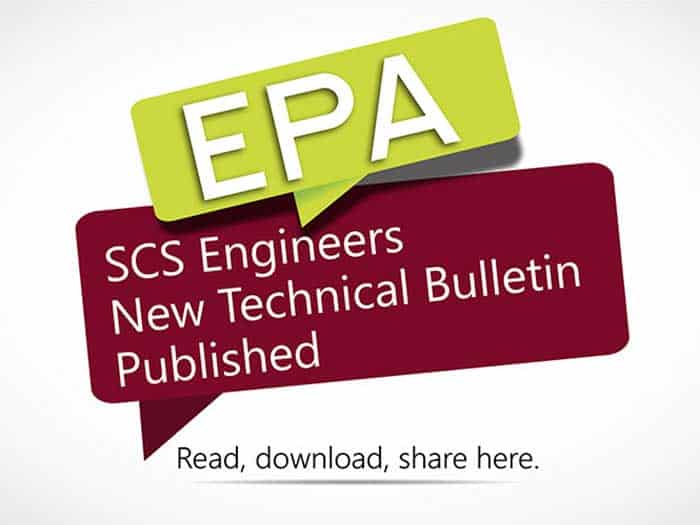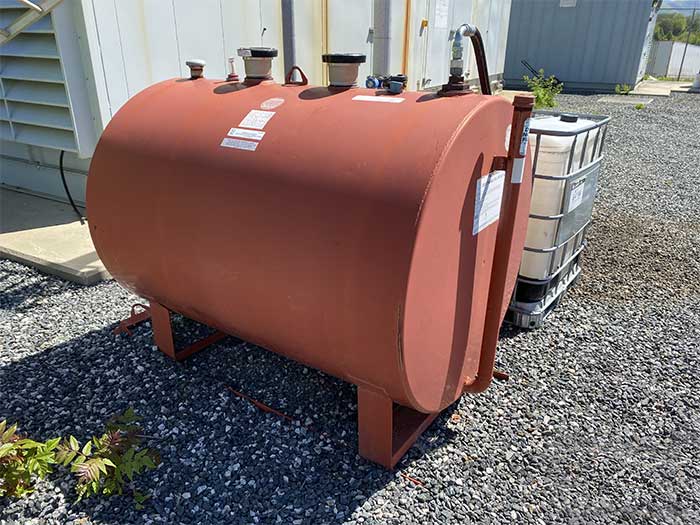

Join SCS Engineers professionals at the 23rd Annual Joint Fall Conference hosted by the SWANA Keystone Chapter and the Pennsylvania Waste Industries Association, September 6 & 7, in Harrisburg, PA.
This conference is Pennsylvania’s premier solid waste management event and includes technical sessions, plenty of networking opportunities, and a trade show.
Exhibitor and sponsorhip opportunities are available.
Click for more conference details and registration information.
Please join SCS Engineers professionals Steve Linehan and Wade Miller at Oklahoma State University’s College of Engineering, Architecture & Technology Career Fair on September 19 at the Gallagher-Iba Arena at the OSU Stillwater Campus.
SCS is an employee-owned, award-winning environmental engineering, consulting, and construction firm with offices nationwide. We are seeking a wide variety of dedicated, hard-working professionals with Science, Technology, Engineering, and Mathematics (STEM) backgrounds.
The fair is FREE to students.
SCS Engineers Senior Project Advisor, Dr. Charles Hostetler will be a presenter at the Groundwater Protection Council’s Annual Forum, September 12-14, in Tampa, Florida.

This year, the GWPC is celebrating 40 years of progress and innovation in groundwater conservation and protection! For four decades the GWPC has worked with its member states to ensure the protection and conservation of groundwater resources for all beneficial uses. This special 40th anniversary conference brings together the best and brightest in the field to discuss the latest research, innovations, and advancements in groundwater science, regulation and management.

SCS Engineers welcomes two experienced environmental consulting professionals to our St. Louis regional office.
Susan Robertson, MBA, is Senior Project Manager. Robertson’s comprehensive environmental due diligence and remedial work rejuvenates prime commercial properties back to health while supporting municipal and private industries’ plans for economic redevelopment.
In the environmental industry for nearly 20 years, Susan has worked on a wide range of consulting projects, including environmental due diligence Phase I and Phase II Environmental Site Assessments. She performs Indoor Air Quality and radon assessments, lead-based paint, and asbestos inspections.
Susan is known for her Brownfield-Voluntary Cleanup Program work under the Missouri Department of Natural Resources¹, Illinois EPA Tiered Approach to Corrective Action, and Missouri Risk-Based Corrective Action risk assessments and historic preservation projects under the Missouri Department of Economic Development².
Julia Hunter is an SCS Project Professional. Julia has five years of experience in environmental consulting, primarily performing environmental due diligence for commercial and telecommunications clients nationwide. She has a Master of Science in Environmental Geoscience from St. Louis University.
Hunter uses the highest standards of care in her due diligence and building sciences investigations, analyzing the data to determine if a property is feasible for its proposed use and future requirements to speed the closure process and ensure no surprises.
“The service these two women perform for our clients is strategic and comprehensive,” states Rachel McShane, SCS – St. Louis project director. “The results of their work help determine the true value of a property before purchase, and if there are any environmental or health concerns, how to remediate them.”
Additional Resources:

Dr. Ketan Shah’s paper entitled “Single-use plastic bottle emissions using life cycle assessment for the US States, challenges, impact, and recommendations” is publishing in June, but those attending the Air and Waste Management Association conference in Orlando, Florida, have the chance to hear Dr. Shah discuss his methods used to develop methane emission estimates and recommendations to reduce them.
Plastics in solid waste management (SWM) are an exigent and pressing problem for many cities. Globally landfills/open dumpsites are used to dispose of over 80% solid wastes, currently serving around 3.5-4 billion people. This number is expected to grow with increased urbanization and population growth (ISWA, 2015).
Methane generation, recovery, and emissions projections for single-use plastic bottles play a vital role in the recycling industry. The scope of work described in this research project includes providing the basis for the methane estimates that discuss the data, assumptions, and calculation methods used to develop the estimates.
Methane emissions estimates to help assess the potential of single-use plastic bottles will have on greenhouse gas (GHG) emissions. As some U.S. states move towards requiring extended producer responsibility (EPR) for the packaging industry to address its waste management impacts, the analysis for the project commends firms for taking steps to pro-actively find a waste management solution for single-use plastic bottles, which may be the next target for EPR legislation.
Objective 1 – Develop Estimates of emissions from single-use plastic bottles using OpenLCA software based on Life Cycle assessment analysis.
Objective 2 – Prepare Comparative analysis for alternative recyclability scenarios.
Objective 3 – Recommendations and solutions to the single use plastic bottles challenge.
The case study results are based on the assumptions for the emissions from the single-use plastic bottles supply chain from cradle to grave. Finally, recommendations for these impacts and challenges will be discussed in detail. Diverting single-use plastic bottles going to landfills helps in reducing the overall environmental impact.
A&WMA ACE 2023 (awma.org). The Air & Waste Management Association (A&WMA) brings leading environmental scientists, practitioners, regulators, and leading environmental firms such as SCS Engineers together to share the latest initiatives addressing environmental issues facing communities such as climate change, exposure reduction through innovative technology and regulatory approaches, sustainability, community monitoring, and environmental justice.
Additional Resources:
SCS Engineers is participating in the FAMU-FSU College of Engineering’s Fall STEM Career & Internship Fair on September 19.
SCS is an employee-owned, award-winning environmental engineering, consulting, and construction firm with offices nationwide. We are seeking a wide variety of dedicated, hard-working professionals with Science, Technology, Engineering, and Mathematics (STEM) backgrounds.
The fair is FREE to students.
Click for registration information

SCS Engineers welcomes Melissa Schick to the environmental firm’s Brownfields and Voluntary Remediation practice, which works nationwide, supporting municipal and public/private sector ventures to remediate previously thought unusable properties back to life.
These properties are not exclusively but often found in urban areas with existing supporting infrastructure. New technologies and environmental processes can turn these well-situated properties safe again for almost any redevelopment purpose, whether housing, recreational facilities, retail/office, or logistics centers.
Schick brings her knowledge of state and federal brownfield redevelopment and voluntary remediation cleanup program regulations. She specializes in U.S. Environmental Protection Agency (USEPA) Regions 3, 4, and 6, supporting the grant application process or overseeing the implementation of USEPA assessment and cleanup grants which provide funds for municipalities to redevelop sites.
Since brownfields and voluntary remediation create valuable economic and natural resources for communities, clients find her experience coordinating communications, outreach, and educational events helpful. As this work demands, Schick often focuses on improving the communications between private developers, regulatory agencies, community leaders, and other partners to smooth project implementation, keeping projects on track and within budget.
“Importantly, Melissa is an ethical and caring person whose work in communities matters to her,” states Kirk Blevins, SCS Project Director. “As a local environmental engineering and consulting firm, she enhances our national practice as a detail-oriented resource to augment communications, outreach, and reporting for comprehensive and cohesive project success.”
Schick has professional affiliations with the Florida Brownfield Association – Board of Directors, the Society of American Military Engineers, and the Florida Association of Environmental Professionals.
We welcome you to learn more about Melissa Schick’s work, background, and education in land remediation services on the SCS website.
Additional Resources:

As you may recall, in September 2022, EPA issued a proposed rule to designate two per- and polyfluoroalkyl substances (PFAS) — perfluorooctanoic acid (PFOA) and perfluorooctanesulfonic acid (PFOS), and their salts and structural isomers — as hazardous substances under the Comprehensive Environmental Response, Compensation, and Liability Act (CERCLA), also known as “Superfund.” EPA is currently reviewing comments received on this proposed rule.
On April 13, 2023, EPA issued an Advance Notice of Proposed Rulemaking (ANPRM) asking the public for input regarding potential future hazardous substance designations of additional PFAS substances under CERCLA. The ANPRM includes:
The ANPRM announcement in the Federal Register is available at: https://www.govinfo.gov/content/pkg/FR-2023-04-13/pdf/2023-07535.pdf
More solutions and information at Liquids Management.

Municipal Solid Waste Facilities (MSWFs) are subject to a wide range of federal, state, and local regulations that govern their operations. Regulatory compliance is essential to ensure the facility operates safely, protects the environment, and meets its legal obligations. The regulatory priorities for a solid waste facility can vary depending on the specific facility and its location. Waste management, air quality permitting, leachate management, and landfill gas management are top regulatory priorities for most solid waste facilities. It is equally important for facility owners and operators to plan for oil spill prevention, but this can be a blind spot. The Federal Spill Prevention, Control, and Countermeasure Rule (SPCC) primarily governs oil spill prevention planning.
The Federal Spill Prevention, Control, and Countermeasure Rule (SPCC) (40 CFR 112.1-112.12) applies to solid waste landfills and transfer stations. The U.S. Environmental Protection Agency (USEPA) requires an SPCC Plan for any non-transportation-related facility with an aboveground storage capacity of 1,320 gallons or more and if it could potentially discharge oil to navigable waters or adjoining shorelines. The SPCC rule aims to prevent oil spills and limit significant environmental and economic impacts.
The SPCC regulations require solid waste facilities to implement spill prevention measures to reduce the likelihood of spills, including providing adequate secondary containment systems for all oil storage containers and spill prevention controls such as automatic shut-off valves or overfill prevention devices.
The regulation also requires an SPCC Plan that includes emergency response procedures in the event of a spill and contact information for assigned emergency personnel. Facilities must document annual and ongoing SPCC training for all personnel who handle petroleum products.
Facilities must regularly inspect their oil storage containers and secondary containment systems to ensure they are in good condition and leak-free. Each facility must maintain inspection records for potential EPA review.
SPCC Plans must be updated and re-certified by a professional engineer (PE) every five years. Additionally, amendments to SPCC Plans must be PE certified within six months of any change in the facility design, construction, operation, or maintenance materially affecting the facility’s oil spill potential.
MSWFs use a variety of petroleum products for their ongoing operations. Here are some examples:
Solid waste facilities and landfills are responsible for preventing environmental impacts and complying with regulations. Implementing an effective SPCC program can help to prevent petroleum leaks and spills from entering natural waterways. In addition to the Federal SPCC requirements, some States have more stringent oil spill planning requirements, so facility owners need to seek guidance when developing their oil spill prevention program. With the proper risk management measures, solid waste facilities and landfills can do their part in protecting the environment while maintaining their essential operating budget.
SCS has prepared and updated thousands of SPCC Plans for clients across the U.S. and in various industries, including MSWFs, bulk petroleum storage terminals, chemical storage facilities, and animal fat and vegetable oil storage facilities.
Find out more about SPCC Planning and Spill Prevention
Meet our Author, Michael Morawski, Project Manager
Visit SCS Engineers’ Booth at the 2023 Virginia Brownfields Conference, June 13-15, at the Institute for Advanced Learning and Research in Danville, VA.
Virginia Brownfields is the premier brownfield redevelopment conference in Virginia and is hosted by the Virginia Department of Environmental Quality (DEQ).
This multi-day event will highlight numerous brownfield sites, including the ongoing revitalization of the Danville White Mill, now called Dan River Falls. The collaborative event will provide information and opportunities to discuss brownfields from concept planning to final development and reuse. The conference will explore funding options, mixed-use and main street development, creating a community brownfields inventory, addressing underserved community needs, site assessment challenges, and success stories from across the state. Representatives from Virginia Energy will deliver a special presentation and day-long Clean Vehicle Expo while the mobile workshops and social event options will keep everyone busy and connected.
Brownfields Success – Respecting the Past, Paving Way for the Future!
Click here for more conference details and registration information